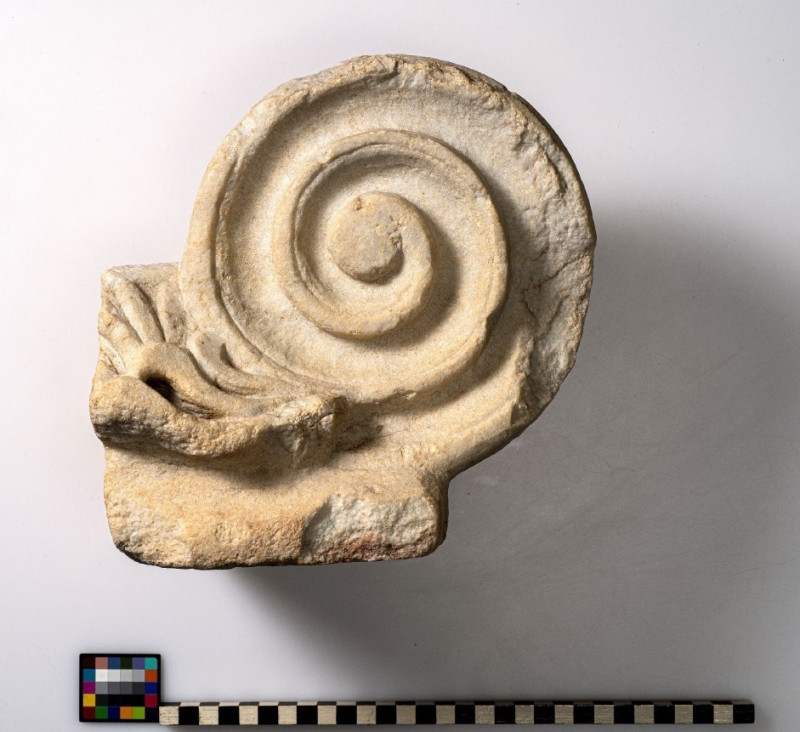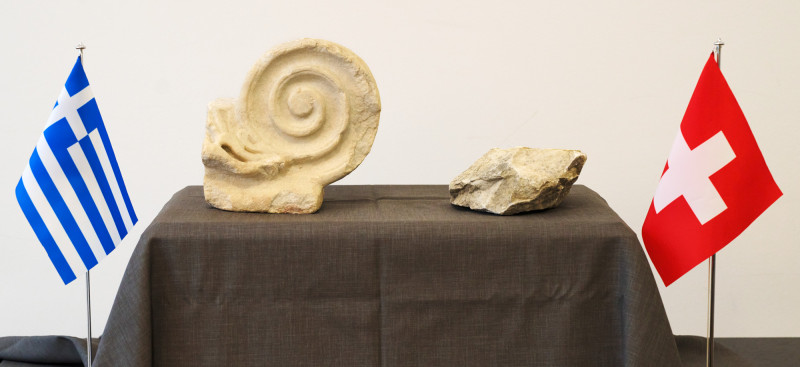It is a fragment of a stone inscription and a fragment of a marble Ionic pilaster
They repatriated on January 23 from Bern, two antiquities that had been illegally removed from Greek territory at an unknown time. It is about for a fragment of a stone inscription and a fragment of a marble Ionic pilaster. According to the announcement of the Ministry of Foreign Affairs that informs about the repatriation, in the fragment of a stone inscription measuring 0.186 m. X 0.169m. X 0.086 m., five verses with proper names are preserved in fragments. The inscription dates back to Hellenistic times (end of the 3rd – beginning of the 2nd century BC) and is said to come from the island of Kos. The fragment of a marble Ionic colonnade, measuring 0.228 m. X 0.228m. X 0.17m., dates back to Roman times (1st – 2nd century AD) with alleged origin in the Ancient Agora of Corinth.
According to the announcement, “the objects were delivered by Swiss citizens in the fall of 2022 and the spring of 2023, respectively, to the Archaeological Service of the Canton of Grisons (Canton des Grisons), which documented their Greek origin. In implementation of the bilateral agreement between the Federal Council of the Swiss Confederation and the Government of the Hellenic Republic, on the import, transit and repatriation of cultural goods, which was ratified by Law 3915/2011, the Federal Office of Culture of Switzerland duly informed the Embassy of Greece in Bern and the Directorate of Documentation and Protection of Cultural Properties, as the competent Service of the Ministry of Foreign Affairs”.
“The repatriation of these two ancient objects demonstrates effectiveness of the bilateral agreements for the prevention and countering of the illegal trafficking of cultural goods that Greece has concluded with several states, in implementation of the relevant prompt of the 1970 Unesco Convention ‘Measures to be Taken to Prohibit and Prevent the Illegal Import, Export and Transfer of Ownership’ of cultural goods’. At the same time, it is proof of the impact of the various actions implemented, both nationally and internationally, to raise awareness among citizens on the issue of antiquities and the need to protect cultural heritage”, concludes the statement of the Ministry of Foreign Affairs.
Source :Skai
I am Frederick Tuttle, who works in 247 News Agency as an author and mostly cover entertainment news. I have worked in this industry for 10 years and have gained a lot of experience. I am a very hard worker and always strive to get the best out of my work. I am also very passionate about my work and always try to keep up with the latest news and trends.












